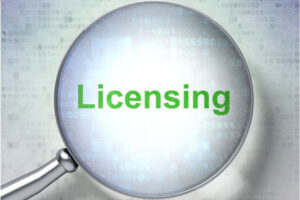While the Texas Medical Board (TMB) is well-known for licensing and regulating doctors, it also issues licenses and permits for other medical professionals and occupations. As a result, it also is responsible for receiving and investigating complaints against individuals working in these occupations. Violations of the rules or laws that apply to these occupations can lead to disciplinary action against individuals who hold these licenses and permits.
Any disciplinary complaint alleging a rule or law violation can have substantial negative consequences for your career. If you face such allegations, you should consult an experienced Texas Medical License defense attorney. Your attorney can represent your interests from the outset of any investigation and during disciplinary proceedings by the TMB. You can benefit from legal representation throughout this process.
Types of Licenses and Certifications that the TMB Issues
In addition to various types of physician licenses, the TMB issues licenses and certifications for the following types of medical professionals and occupations:
- Physician Assistants
- Acupuncturists
- Medical Radiologic Technologists, including:
-
- General Medical Radiologic Technologists
- Limited Medical Radiologic Technologists, and
- Non-Certified Radiologic Technicians
- Acudetox Certification
- Surgical Assistants
- Medical Physicists
- Perfusionists, and
- Respiratory Care Practitioners
-
TMB Regulation of License and Certificate Holders
TMB not only issues licenses and certificates for the occupations listed above but also receives, processes, and investigates complaints concerning individuals working in these occupations. If TMB finds that licensed or certified individuals under its jurisdiction have violated a rule or law applicable to them, it also can initiate enforcement or disciplinary proceedings against the individuals.
Initial Evaluation of Complaints by TMB
When TMB receives a complaint, it evaluates it to determine if it is jurisdictional. A complaint is jurisdictional if it is against someone whom the agency licenses or certifies and if it alleges a violation of the Medical Practice Act (MPA).
If TMB staff conclude that the complaint is jurisdictional, it completes an initial review within 45 days of receiving it. If the complaint concerns an administrative matter, a TMB attorney-investigator handles the review; if the complaint concerns medical care, a TMB physician-investigator handles the review. During this review, the TMB investigator may contact both the complaining party and the license holder for more information about the subject of the complaint.
If the initial evaluation shows no specific allegation that would constitute a violation of the MPA or the information provided fails to show that a violation occurred, the investigator will close out the complaint.
Investigation of TMB Complaints
If the TMB opts to open a formal investigation concerning a complaint, the staff advises the license holder of the alleged violation and requests additional information. Staff also may subpoena relevant information from other sources, including medical records, without the patient’s consent.
Any complaints that involve violations of the standard of care or treatment will be subject to review by at least two members of the TMB Expert Panel who are board-certified in the same or similar medical specialty as the license holder. If the Expert Panel members find that the license holder acted in a manner that was inconsistent with public health and welfare, including failure to meet the standard of care, the case will go to the Litigation Section for further action. Otherwise, the case will be dismissed. Cases not involving the standard of care will result in gathering information from other sources, if applicable, and move forward to the Litigation Section or be dismissed as warranted.
Physician Health Program
If a case deals with the physical or mental impairment of the license holder, TMB staff may refer the individual to the Texas Physician Health Program (TXPHP) for evaluation and resolution at any point during the investigation. TXPHP handles cases involving physicians and all individuals licensed or certified by TMB.
Quality Assurance Panel
The Quality Assurance (QA) Panel reviews cases from the Investigations Department. This panel may take several actions concerning a case, including:
- Requesting additional investigation;
- Referring a case to the Litigation Department for an Informal Settlement Conference (ISC) or a hearing before a disciplinary panel;
- Referring a case to the disciplinary process review committee for dismissal; or
- Offering the license holder a remedial plan, which the license holder can either accept or decline, instead of asking for an ISC hearing.
ISC Hearings
ISC hearings occur before a panel of two board representatives for the occupation of the license or certificate holder at issue. Unless the license holder waives this requirement, these panels always include one physician and one public member. An ISC hearing allows the panel to review the information and evidence concerning the complaint and the license holder to show how they comply with the MPA.
The panel has three options following the ISC hearing:
- If the panel finds no violation of the MPA, it will refer the case to the disciplinary process review committee for dismissal;
- If the panel finds a violation of the MPA, it can offer the license holder an agreed order that provides for sanctions and terms and conditions to be imposed on the license holder; or
- If the panel finds some minor violation of the MPA, it can offer the license holder a remedial plan, which is a non-disciplinary corrective action.
About 90% of all complaints are resolved through the ISC hearing process.
Formal Resolution through the State Office of Administrative Hearings
If the evidence supports a violation of the MPA, and the parties cannot resolve the complaint through an agreed order or remedial plan, the case goes to the State Office of Administrative Hearings (SOAH) for formal resolution. SOAH assigns an administrative law judge (ALJ) to the case, who schedules an administrative hearing. After hearing evidence from both sides, the ALJ holds the hearing and presents a Proposal for Decision (PFD) to the TMB. In response, the TMB either issues a final order setting forth sanctions on the license holder or dismisses the case. The TMB’s order is final in that the license holder can appeal the order to the Travis County District Court if they wish to challenge the decision further.
We Are Here to Defend You Throughout Your Disciplinary Proceedings
Facing an investigation and potential disciplinary proceedings before the TMB can be a difficult and stressful experience. Losing your occupational license or permit can leave you without the means to support yourself or use the degree you have worked hard to earn. We can help you resolve your disciplinary investigation in the most positive manner possible. Get legal assistance from an experienced Texas Medical Board defense lawyer today. Contact Bertolino LLP at (512) 515-9518 or visit us online.
Call or text (512) 476-5757 or complete a Case Evaluation form






